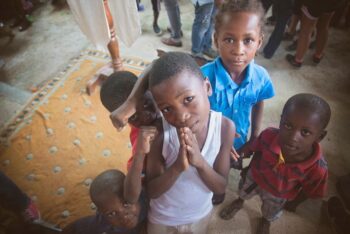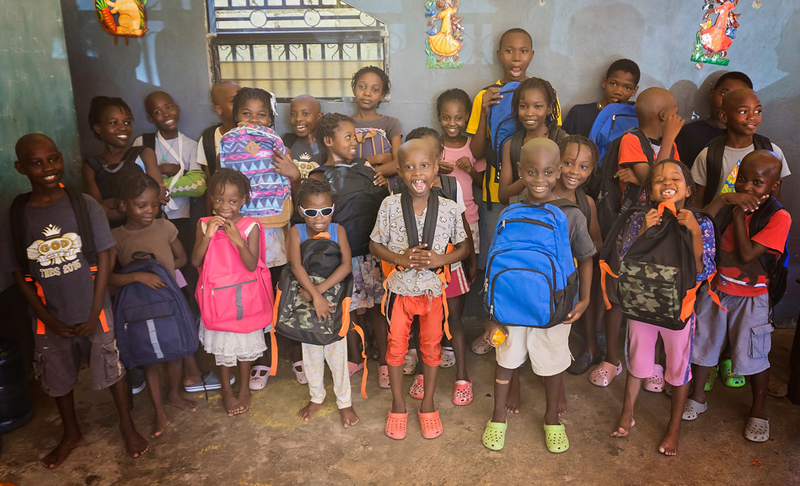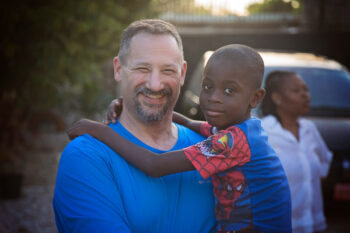By Mark Ellis –

Nearly 1,000 Americans have submitted a “crisis intake form” to the U.S. State Department seeking assistance to leave Haiti, as gangs have united in the capital in an audacious attempt to seize power.
While the U.S. moves slowly to assess the threat and respond, private efforts are rescuing Americans, with Rep. Cory Mills (R-FL) coordinating one such rescue after US government sources failed to help a Christian group visiting an orphanage in the capital.
Recounting the details in an interview with CBN News, author Mitch Albom said he and the group were forced to flee in a helicopter in the dead of night. “It was pretty clear that, if we were going to find a way out, we were going to have to do it independently,” he said, after explaining outreach to the US government didn’t go anywhere. “We began to explore those options.”
Dave Brodsky, founder of Chanje/The Global Mission, oversees a children’s shelter outside Port-au-Prince housing 29 children. They were forced to relocate from the capital following an attack on their orphanage in 2021.
“I am daily in touch with our staff there. It was bad (then) and it’s definitely gotten worse since the assassination of the prime minister in July of 2021. There’s no elected officials remaining inside the government of any kind; any remaining official in the government is an appointee,” he notes.
A devastating earthquake in 2021 damaged Haiti’s economic conditions and led to a rise in gang violence. Since 2022, Haiti has had no president, no parliamentary quorum, and a dysfunctional high court due to a lack of judges.
“A lot of American missionaries are stranded,” Brodsky says. “A number of missionaries who live in Haiti have adopted children who are Haitian, or have family members married to Haitians, so they feel like Haiti is their home.

“So it’s not like they’re about to leave just because they’re American citizens. They have stayed much longer than perhaps a missionary who’s there for a few years. People ask ‘Why didn’t they leave?’ Well, yes, they probably ought to, but they’re trying to share the love of Christ with people. And they care as much about that as they care about their own lives.”
There are risks associated with remaining for Chanje’s team and the children they oversee. “They’re definitely under threat. There’s one particular gang which wants to take over the region where we are above Port au Prince. The gangs have been making sorties up into the mountains, and there’s a particular gang with the biblical name of Canaan, and the gang chief is named Izo. Izo has gone into the mountains several times, burned down police stations, and shot up the main hospital, which is actually one of the most significant hospitals in Haiti.”
The banking system in Haiti has also been impacted, as civil society implodes. “The banks aren’t open very long. It’s hard to access money. The lines are long; the people are scared, and the threat of being robbed is high,” he observes.
The airport in Port au Prince closed after gangs fired at jets on the tarmac. The gangs also attacked the prisons, freed inmates, and set the facilities on fire.
“The US government said Americans should leave. But of course, there’s no commercial method by which Americans can leave, so many US citizens are feeling very trapped,” he says.
Brodsky believes it will require outside military intervention – and divine intervention — to restore order. There is no military within the country because Haiti disbanded its military in 1995, a decision made by President Jean-Bertrand Aristide as part of his effort to promote stability, and address issues of corruption and human rights abuses.
“They only have a police force, and their police forces is outgunned by the gangs. The gangs have plenty of ammunition and automatic weapons, while the police have regular handguns, very few long guns and not nearly enough ammunition or armor,” Brodsky notes.
“They definitely need a crushing military presence to force the gangs to lay down their weapons and flee Haiti. The United States doesn’t have the stomach for that. Any country that steps in that role will be hated because of collateral damage to innocent people.”
Language is another issue, since the population speaks French. “How many of these troops that we could get to go fight in Haiti actually speak French, so the people could understand commands from a foreign soldier?” he asks.
“People right now are hoping for the UN, Kenya, or the US (to intervene). Whatever political leader they’re hoping for, that’s not going to be their Savior,” Brodsky says.
“Pray for people’s daily food needs; there are enormous hunger needs. So many organizations that are focused on food distribution have been shut down, they just can’t operate, or their staff have left or are in hiding.”
And there are extreme medical needs because the gangs have shut down many hospitals. “Blood banks are running out of their supplies. Physicians and medical professionals are at huge risk of being kidnapped and ransomed. The gangs like to kidnap them, especially to have them take care of their wounded gang members. A lot of hospitals aren’t functioning so the regular patient doesn’t even have a clinic to go to.”

Brodsky asks for wisdom and discernment about the next steps for the children’s shelter. They have identified a place they could move in the event of an emergency, which seems likely, and have begun to raise money to support their relocation.
In the midst of these impossible circumstances, Brodsky seeks help from above. “There is no human answer to this problem. We’re praying for a spiritual revival for Haiti, because that’s what it’s going to take for Haiti to change, for people to turn in repentance to Jesus Christ and embrace him as their only hope.
To learn more about Chanje/The Global Mission, go here



